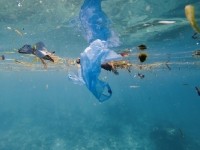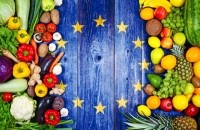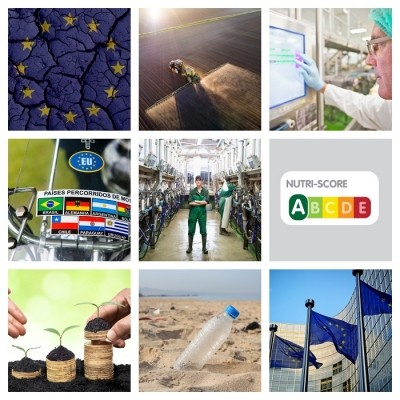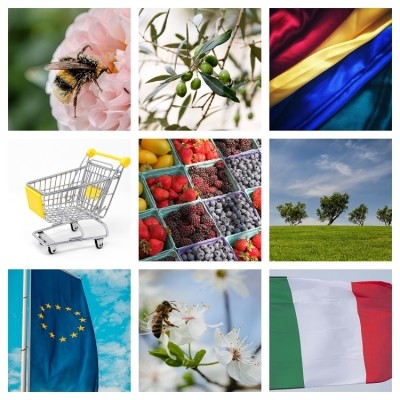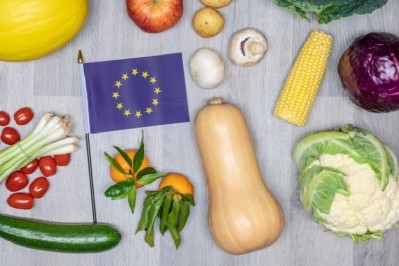CAP vote meets protest & SUP directive sparks industry response: A round-up of EU news & views
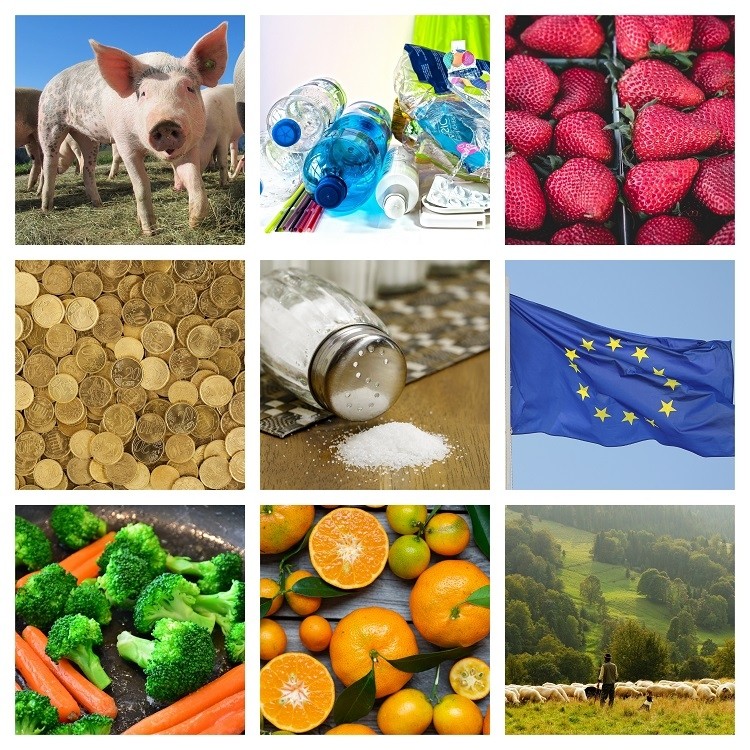
Single-Use Plastic Directive prompts industry response
On 27 March 2019, the European Parliament voted in the Single-Use Plastics (SUP) Directive.
560 MEPs voted in favour, 35 voted against, and 28 abstained.
The Directive (available here) raises awareness of litter – with particular focus on marine litter – among its citizens, and provides recommendations for Member States to reduce the use of plastics.
It is expected the Directive will be published in the Official Journal of the EU ahead of European elections in May.
The Directive has received some criticism for being ambiguous, with membership organisations asking for clarity to avoid distortions across the bloc.
PlasticsEurope, for example, which represents plastics manufacturers, endorsed the European Parliament’s adoption of the SUP Directive yet called for guidelines on definitions and categories to be promptly set – to avoid misinterpretation across the Member States.
“We will continue working with the value chain and engaging with the relevant policymakers in order to identify and implement the most efficient solutions to prevent littering and develop new ways to boost reuse and recycling,” said PlasticsEurope executive director Karl H Foerster.
Membership organisation FoodDrinkEurope (FDE), said it is ‘committed to stepping up efforts’ to improve plastics use, reuse and recycling, in response to the European Parliament’s adoption of the single-use plastics (SUP) directive.
However, additional measures implementing the Directive are essential to avoid distortions on the Internal Market, said FDE, voicing additional concerns that targets will only be met if there are high-performing collection, sorting and recycling infrastructures.
“There is also a need for a clear and robust methodology for the calculation of recycled content in plastic bottles, which should be based on an evaluation of the amount of recycled plastics available that are considered suitable for food and drink products.
“We call on the European Commission to make these a part of their priorities, especially in the context of the Circular Plastics Alliance discussions.”
“Improving the environmental performance of plastic packaging used in the food and drink sector should go hand-in-hand with ensuring a high level of food safety for consumers in Europe.”
EuroCommerce, which represents the interests of retailers and wholesalers in Member States, similarly expressed concerns regarding distortion in the Single Market.
“We are as a sector already actively doing our bit in reducing plastic waste, but to do so effectively we need consistent implementation, and the engagement of the whole supply chain and public authorities to achieve real reductions in single-use plastic and marine litter,” stated EuroCommerce director-general Christian Verschueren.
“Without a proper waste management infrastructure and sufficient recycling facilities, we will not achieve a circular economy or the objectives of this directive."
“Looking beyond today’s vote, the Commission will have important work to do in producing implementation guidelines to ensure consistent rules across Europe on crucial elements of the directive like the definition of single-use plastics and the criteria on the clean-up costs of litter, and ensuring commitment by the whole supply chain” – EuroCommerce director-general Christian Verschueren
Pig protests against MEPs vote for CAP post-2020
Members of the European Parliament’s agriculture committee have approved reforms for the next Common Agricultural Policy (CAP).
27 MEPs voted in favour of the reforms, 17 voted against, and one abstained.
In short, the proposed policy would see 60% of CAP funding go towards direct payments and at least 30% of the rural development budget be put towards environmental projects. The vote also sees support for a CAP on direct payments of €100,000.
This opinion will be brought to the Parliament after the European elections in May.
The vote has been met with protest from animal and environmental welfare activists, who say the result commits the EU to continue subsidising “Europe’s most environmentally destructive factory farms”.
One such protestor was a giant squealing pig in a cage, accompanied by signs reading ‘Vote NO to factory farms’.
Greenpeace, for one, has spoken out against the vote. The activist group said it is dismayed the agricultural committee rejected proposals to cut public funding for factory farms and to limit the number of animals “crammed together” on farms receiving EU support.
“The committee also vote against making CAP payments conditional on basic animal welfare standards, including giving farm animals enough space to move, turn around and life down”.
“It’s shameful that the agriculture committee has backed factory farms, which harm the environment and the climate, mistreat animals and drive small farms out of business.
“But the EU Parliament as a whole can still follow the lead of the environment committee and cut public subsidies for factory farming, promoting smaller family farms with higher environmental standards instead” - Greenpeace EU agriculture policy director Marco Contiero.
New mutual recognition regs to strengthen Single Market, says FoodDrinkEurope
New regulation on mutual recognition of goods marketed in another Member State has been published in the EU Official Journal (available here).
This means that products lawfully marketed in any Member State can more easily be sold elsewhere in the Single Market.
According to FoodDrinkEurope (FDE), a membership organisation supporting the interests of EU food and drink manufacturers, the regulation will strengthen the European Single Market and act to benefit industry and consumers alike.
“It will reduce the possibility for artificial barriers to trade to be erected, and will set out clear guidelines for all stakeholders should there be a disagreement related to the lawful marketing of a product,” stated FDE.
“The strength of the Single Market is evident in kitchens and pantries across the EU, where European consumers enjoy the variety and taste of all European cuisines.” – FoodDrinkEurope
“The regulation on mutual recognition will make it even easier for Europeans to enjoy the food and drink they love, no matter where they are in the EU.”
Funding boost for milk, fruit and vegetables in schools
The EU has allocated €145m for fruit and vegetables and €105m for milk and dairy products to promote healthy eating habits in schools across the bloc.
The funding falls under the EU school fruit, vegetable and milk schemes for 2019/2020, and will be accompanied by education programmes focusing on agriculture and healthy eating.
The 2017/2018 scheme saw 159,000 schools participate in the programme, and 255,500 tonnes of fresh fruit and vegetables distributed to children in the EU.
"Thanks to the EU School Scheme, our young citizens can benefit from the nutritious, safe and high quality food that our European farmers produce, while also learning about where it comes from,” said Agriculture and Rural Development Commissioner, Phil Hogan.
“The Commission is proud to contribute to this important educational journey, establishing healthy habits from a young age."
Worth its salt? EFSA consults on dietary reference values
The European Foods Standards Agency (EFSA) is inviting input on its draft dietary reference values for sodium and chloride.
The Panel on Nutrition, Novel Foods and Food Allergens has proposed that the salt elements – which are commonly added to food as an ingredient, condiment or preservative – can be safely consumed by the general adult population in the following quantities:
- An intake of 2 g sodium per day, considering evidence on the risk of cardiovascular disease on the one hand and nutrition adequacy on the other;
- An intake of 3.1 g chloride per day to be safe and adequate, taking account that the main source of chloride in EU diets is sodium chloride.
Age-specific values of both sodium and chloride for children have also been proposed.
These provisional reference values are designed to serve policymakers in the EU and its Member States when deciding on nutrition policies and dietary guidelines, stressed EFSA.
Input on EFSA’s draft dietary reference values is welcome for sodium here and for chloride here.
